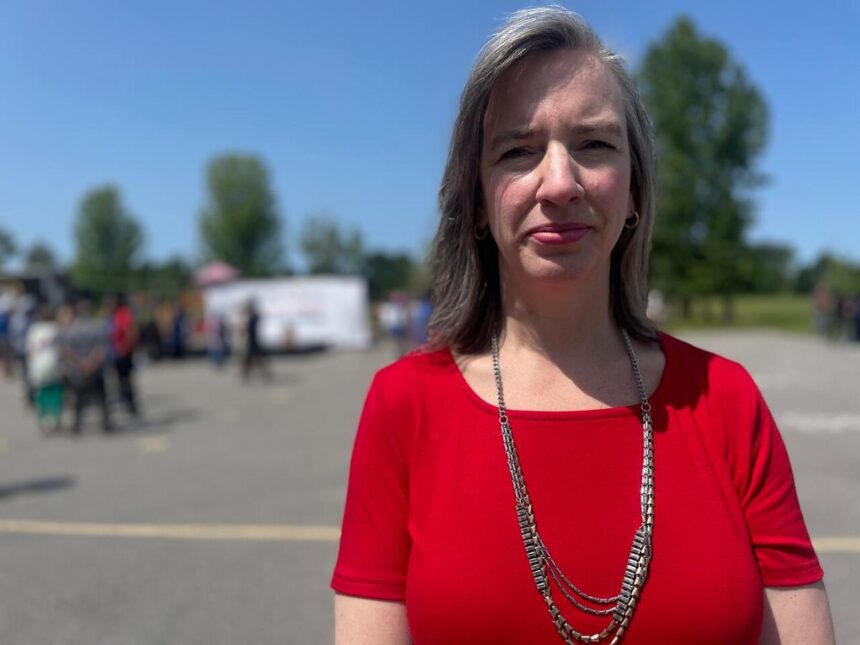The annual Ottawa Summer Food Drive kicks off this week, arriving at a critical moment as local food banks report unprecedented demand across the capital region. This year’s campaign comes as inflation and housing costs continue to stretch family budgets beyond their breaking points.
Last month alone, the Ottawa Food Bank served over 54,000 residents – a staggering 32% increase compared to the same period last year. Nearly one-third of those seeking assistance were children.
“We’re seeing families who’ve never needed our services before,” explains Rachael Wilson, CEO of the Ottawa Food Bank. “Many are working full-time jobs but simply can’t make ends meet with today’s cost of living.”
The food drive runs from June 15-30, with donation bins available at major grocery chains including Loblaws, Metro, and Farm Boy locations throughout Ottawa. Online donations can be made through the Ottawa Food Bank website.
This year’s most-needed items reflect changing demographics among those seeking help. Culturally appropriate foods like lentils, chickpeas, and halal options top the list alongside staples such as pasta, rice, and canned proteins.
“Our community has always stepped up when needed most,” says Wilson. “Last summer, Ottawans donated over 42,000 pounds of food. This year, we’re hoping to reach 60,000 pounds.”
Behind these numbers are real Ottawa families facing impossible choices. Sarah M., a Vanier mother of two who recently started using food bank services, shared her experience.
“I work full-time in healthcare, but after rent increased last year, there’s just not enough left for groceries,” she explains. “I never imagined I’d need this help, but I’m grateful it exists.”
Local businesses are also rallying behind the cause. Gabriel Pizza has pledged to donate $1 from every large pizza sold during the campaign period, while Bridgehead Coffee locations will collect non-perishable donations at all Ottawa shops.
City councillor Rawlson King, who represents Rideau-Rockcliffe, emphasized the widespread nature of food insecurity. “This isn’t just affecting one neighborhood or demographic. We’re seeing need across the entire city, including areas not traditionally associated with food insecurity.”
Summer presents unique challenges for food banks. School nutrition programs pause during break, leaving many families without this crucial support. Meanwhile, donation levels typically drop as Ottawans focus on vacations and summer activities.
Community food coordinator Michael Thompson notes another concerning trend: “We’re seeing more seniors than ever before. Fixed incomes simply aren’t keeping pace with inflation.”
The Ottawa Public Health Department recently released findings linking food insecurity to poorer health outcomes and increased healthcare costs. According to their research, food-insecure households experience higher rates of chronic conditions and mental health challenges.
“It’s a public health issue as much as a social one,” explains Dr. Vera Etches, Ottawa’s Medical Officer of Health. “Adequate nutrition is fundamental to well-being, especially for developing children.”
Local schools are joining the effort too. The Ottawa-Carleton District School Board has organized friendly competition among summer programs, with students decorating collection bins and tracking donations.
“Kids genuinely want to help,” says Eleanor Mitchel, a teacher at Glashan Public School. “They understand that some of their classmates might be struggling, and they’re eager to make a difference.”
For those looking to maximize their impact, monetary donations provide exceptional value. The Ottawa Food Bank can transform each dollar donated into roughly $5 worth of food through bulk purchasing and industry partnerships.
While the summer drive addresses immediate needs, advocates emphasize that food insecurity requires systemic solutions. Ottawa ACORN, a community organization representing low and moderate-income families, continues pushing for affordable housing and living wage policies.
“Food banks are essential but were never meant to be permanent solutions,” notes Ray Noyes, an ACORN member. “We need policies that address root causes like housing affordability and income inequality.”
As temperatures rise and summer festivities begin, organizers hope Ottawans will remember neighbors in need. Whether donating a few cans or organizing workplace collection drives, every contribution matters.
“Ottawa has always been a community that looks out for one another,” Wilson reflects. “That spirit of generosity is what makes this city special.”
For information on donation locations or to contribute online, residents can visit the Ottawa Food Bank website or call their community information line.







